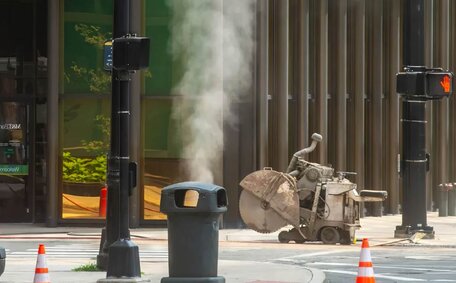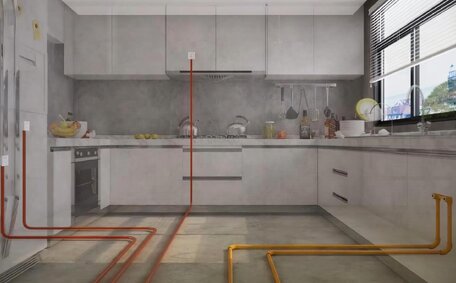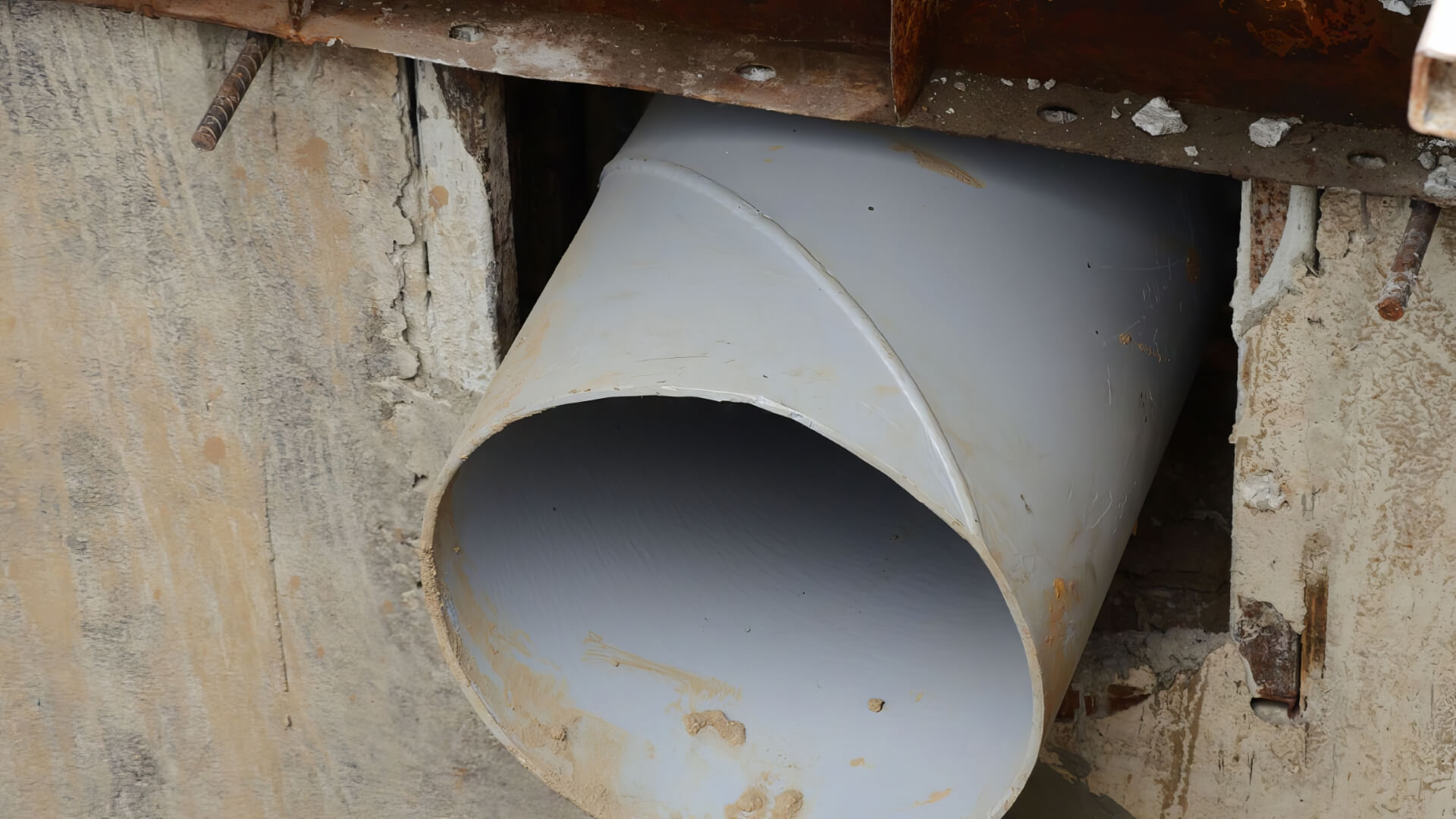Understanding Pipe Relining Safety Measures
Pipe relining offers a contemporary, secure method for fixing pipes, safeguarding your plumbing system without necessitating complete replacement. At Rouse Hill Plumbing, our commitment to safety extends from our team to our clients during pipe relining projects.
In this guide, we will cover the key safety considerations around pipe relining, including the use of safe materials like epoxy resins, adhering to regulations, and ensuring a secure installation. We will also highlight the minimal disruption and additional benefits that we offer with relining pipe, including its efficiency in repairing extensive damage within plumbing systems, outperforming traditional pipe replacement.
Topics our team will explore here include:
- Comparing pipe relining vs replacement
- An overview of the pipe relining process
- The process involves ensuring the safety of epoxy resins which can make the inside of pipes as durable as new
- Steps we take to ensure a safe installation
- Regulations our team follows for your peace of mind
- How pipe relining minimises disruption to your property
Personal Protective Equipment Needed
Utilising the correct personal protective equipment (PPE) is essential for the safety of our professional plumbers when executing pipe relining tasks. At Rouse Hill Plumbing, the key PPE items our team plumbers use include:
- Protective gloves - We wear thick, chemical-resistant gloves when handling epoxy resins to reinforce an old pipe to avoid skin contact.
- Safety goggles - Goggles protect our eyes from resin splashes and fumes during the installation process.
- Disposable overalls - Our plumbers wear overalls to avoid getting epoxy and other chemicals on their clothing and skin.
- Steel-capped boots - Sturdy footwear prevents injuries if heavy items are dropped.
- Respirator masks - We use respirator masks that filter out solvent fumes for safe breathing.
Following rigorous PPE protocols ensures our team creates a smooth surface within relined pipes using pipe safety measures and completes jobs safely without risk of burns, respiratory issues, or other accidents. It also gives our customers peace of mind that we prioritise both our team’s wellbeing and their property’s safety at every step.
Through compliance with state regulations, our team ensures safe and non-disruptive pipe repairs.
Hazards to Mitigate During Pipe Relining
While pipe relining is a safe trenchless pipe repair method, there are still some potential hazards our team takes steps to mitigate:
- Chemical exposure - Epoxy resins and solvents pose skin, eye and respiratory risks. We use proper PPE like gloves and masks to prevent contact.
- Confined spaces - Working inside pipes can increase accident risks. We assess risks and follow safe entry procedures.
- Slips/trips/falls - We ensure tidy, obstacle-free work sites to avoid accidents.
- Fire risks - We don’t allow smoking onsite and avoid ignition sources near flammable chemicals per regulations.
- Noise - Hearing protection lowers risks from equipment noise during relining.
- Muscle strain - We use ergonomic methods to avoid overexertion when handling pipes.
By following all procedures in our safety management plan, pipe relining can be more secure than pipe replacement that require digging of trenches through properties.
Proper Ventilation and Air Monitoring
Effective ventilation and air quality management are crucial when working with epoxy resin and solvents during pipe relining operations. At Rouse Hill Plumbing, We employ high-quality extraction fans and ductwork to eliminate fumes and maintain a safe work environment.
We continuously use gas detection meters to monitor oxygen and contaminants, ensuring the safety of work areas. Audible alarms alert our technicians if any ventilation issues arise so they can promptly address them.
Maintaining negative air pressure with at least six complete air changes per hour prevents harmful fume accumulation, which is a significant benefit of our pipe relining service. Prioritising proper ventilation affords peace of mind to our team and customers, mitigating risks and adhering to work health and safety regulations.
We confirm safe air quality levels before removing any breathing apparatus and completing the relining job. With air monitoring and venting procedures factored into our safety plan, We provide a cost effective pipe remediation without unnecessary risk from chemical exposures.
Avoiding Skin Contact with Hazardous Materials
When working with hazardous materials like epoxy resins, which can often result from addressing a blocked drain, avoiding skin contact is imperative. At Rouse Hill Plumbing, we implement strict safety protocols to prevent exposure.
Our plumbers are equipped with chemical-resistant gloves and full-coverage disposable overalls. We also set up designated resin mixing stations with spill containment trays to limit contamination.
We have emergency wash stations on standby which can repair skin exposure rapidly if any materials make contact with skin. These use a high-volume water flow for rapid rinsing.
By following safety data sheet guidelines and regulatory exposure limits, there are no safety concerns for our team, and no further damage to pipes. We also avoid tracking resins offsite or spreading them to customers’ properties through contamination.
With rigorous controls around skin exposure plus continuous air monitoring, we underscore our commitment to complete relining jobs safely while giving customers confidence in our dedication to health and safety.
Work Area Containment
Proper containment of the work area is vital for safety and to prevent contamination when opting for pipe replacement. At Rouse Hill Plumbing, we take several key steps to securely seal off the area:
- We set up plastic sheeting around the immediate relining site to block any material splashes or fumes.
- Warning signs clearly mark the workspace and advise others to avoid entry.
- Access points like manholes are sealed save for essential entry and exit by our plumbers.
- We establish negative air pressure within the contained workspace to avoid any airborne contaminants escaping.
- Airlocks allow materials and plumbers to safely move in and out of the enclosed space.
Full site containment not only prevents dispersion of resins or chemicals but also averts flammable fume accumulation, eliminating the need for disruptive drain excavation. Continuous air monitoring guarantees containment remains secure.
Our comprehensive zoning and sealing methods enable us to conduct trenchless relining safely, with no risk to nearby property or individuals. This demonstrates our commitment to safety alongside the reliability and minimal disruption pipe relining otherwise offers.
Required Certifications and Training
When undertaking pipe relining work, having the proper training and certifications is essential for safely and effectively completing jobs. At Rouse Hill Plumbing, our team holds all required qualifications to meet industry standards in sewer pipe relining.
Key certifications our plumbers possess include:
- Confined Space Entry Training
- Working with Hazardous Materials Accreditation
- Licenced Trade Plumbing Credentials
- Epoxy Pipe Relining Certification
- Trenchless Pipe Repair Accreditation
We ensure expertise in the latest safety methods through continuous professional development. This guarantees that our methods address pipe issues thoroughly, following best practices for containment, chemical management, air monitoring, and beyond.
Our commitment to proper training gives customers confidence that jobs will be completed to the highest safety and workmanship standards. We maintain full compliance with all regulations so you can count on minimally disruptive and reliable pipe remediation.
Licenses and Regulations
We maintain all requisite licenses and regulations for professional pipe reliners in Australia. At Rouse Hill Plumbing, we hold all required certifications and strictly adhere to industry rules and guidelines.
Main regulations include:
- Plumbing and Drainage Act 2018 (NSW)
- Plumbing Regulations 2018 (NSW)
- AS/NZS 4676 Structural integrity - Determination of tensile properties of cylindrical pipe and pipe fittings
- AS/NZS 3725 Design for installation of buried concrete pipes
- AS/NZS 2566 Parts 1 and 2: Buried Flexible pipelines
Our licensed plumbers keep abreast of Australian Standards, ensuring safety during pipe relining of PVC and cast iron pipes alike.
We maintain full compliance across all our pipe relining projects. Customers can rest assured our team works to verifiable safety standards as we repair and reline pipes with minimal disruption.
Pipe Relining Equipment Safety
Using proper equipment safely is crucial when undertaking sewer pipes relining work. At Rouse Hill Plumbing, we routinely inspect and maintain our professional-grade equipment to ensure optimal performance and safety.
Key checks to ensure each new one maintains integrity include:
- Electrical safety - All power tools and equipment undergo tagging and testing to Australian Standards by qualified technicians.
- Guards and shields - We ensure protective covers are kept in place and replaced when showing wear.
- Lifting gear - Slings, hoists and jacks are examined before use according to safe working load limits.
- Air monitoring devices - Gas detectors undergo regular bump testing and calibration to ensure accurate readings.
By proactively maintaining and testing gear, this is how we get job done safely, preventing workplace incidents and avoiding disruptions. Our rigorous equipment checks also guarantee air monitoring devices function reliably for safely detecting hazards.
Customers can have full confidence in our commitment to ensuring the safety of the pipes your property contains, providing solutions that last many years, while carrying out relining work with minimal disruptions.
Environmental Protection
Pipe relining, being an advanced alternative to traditional pipe repair, offers significant environmental benefits, without the worry of digging up your landscaping, compared to conventional pipe replacement techniques. At Rouse Hill Plumbing, we utilise eco-friendly materials that mould into damaged pipe interiors, preventing further disruption and landscapes.
The key environmental benefits pipe relining provides include:
- No excavation needed, preserving your garden landscapes, tree roots, and your drain pipe structures
- Minimal waste - the existing pipe structure is reused rather than disposed of, making the most of the current pipe structure
- Low carbon emissions without large equipment or transport trucks
- Quiet operation without disruptive jackhammering or digging
- Limited impact on natural habitats and animal life
We confirm the safe use of materials such as epoxy resins for repairs, with their health and environmental safety attested by compliance certificates.
Our trenchless technology streamlines the process, swiftly and sustainably unclogging and enhancing pipes, surpassing the efficiency of conventional replacements. This trenchless technology is faster than pipe repair methods, maintaining ecological integrity around your lawn, homes, and businesses.
By choosing Rouse Hill Plumbing as your pipe repair experts, you can give your pipes extended life responsibly while avoiding property damage and protecting the wider environment.
Epoxy and Resin Safety
Determining the handling and curing duration accurately is vital. When working with epoxy resins and other chemicals used in pipe relining, ensuring proper handling and curing safety is crucial. At Rouse Hill Plumbing, we utilise only high-quality, low-VOC materials that meet Australian Standards once fully cured.
For the safe utilisation of epoxy and resin, we prioritise the following practices:
- Wearing full protective equipment like gloves, goggles and respirators when mixing and handling materials
- Operating in well-ventilated spaces and isolating work areas to minimise exposure
- Monitoring air quality and maintaining ventilation until resins are fully hardened
- Allowing sufficient curing times based on environmental factors before re-entry or returning pipes to service
- Testing cured epoxies with gas detection probes to validate safety prior to removing breathing apparatus
- We secure compliance certificates confirming our environmentally safe disposal practices for old pipes post-installation.
Our management of old pipes and excess resin disposal through regulated waste services prevents environmental contamination.
Our meticulous regulation of mixing, handling, curing, and disposal safeguards your plumbing system during the relining process.
Proper Curing and Disposal
Once pipe relining is complete, properly curing the epoxy resins is critical before restoring normal use. At Rouse Hill Plumbing, we adhere to regulated cure times and test cured pipes thoroughly before disposal of equipment.
We adhere to stringent guidelines for curing and disposal, freeing you from worrying about the technical details.
- Acknowledging the necessary curing time for epoxy liners given the environmental conditions is crucial
- Testing samples with probes to validate complete hardening and safety
- Flushing pipes with clean water to remove residual chemicals
- Safely removing breathing apparatus only after air testing proves safe levels
- We ensure professional disposal of all containers and leftover lining materials
- No waste enters landfill or waterways, ensuring environmental safety
Our closely regulated cure times, typically only a few hours, along with a thorough relining process, guarantee the safety of both our technicians and clients, as well as environmental protection.
By adhering to industry best practices, Rouse Hill Plumbing excels in delivering state-of-the-art, minimally invasive pipe relining services.






